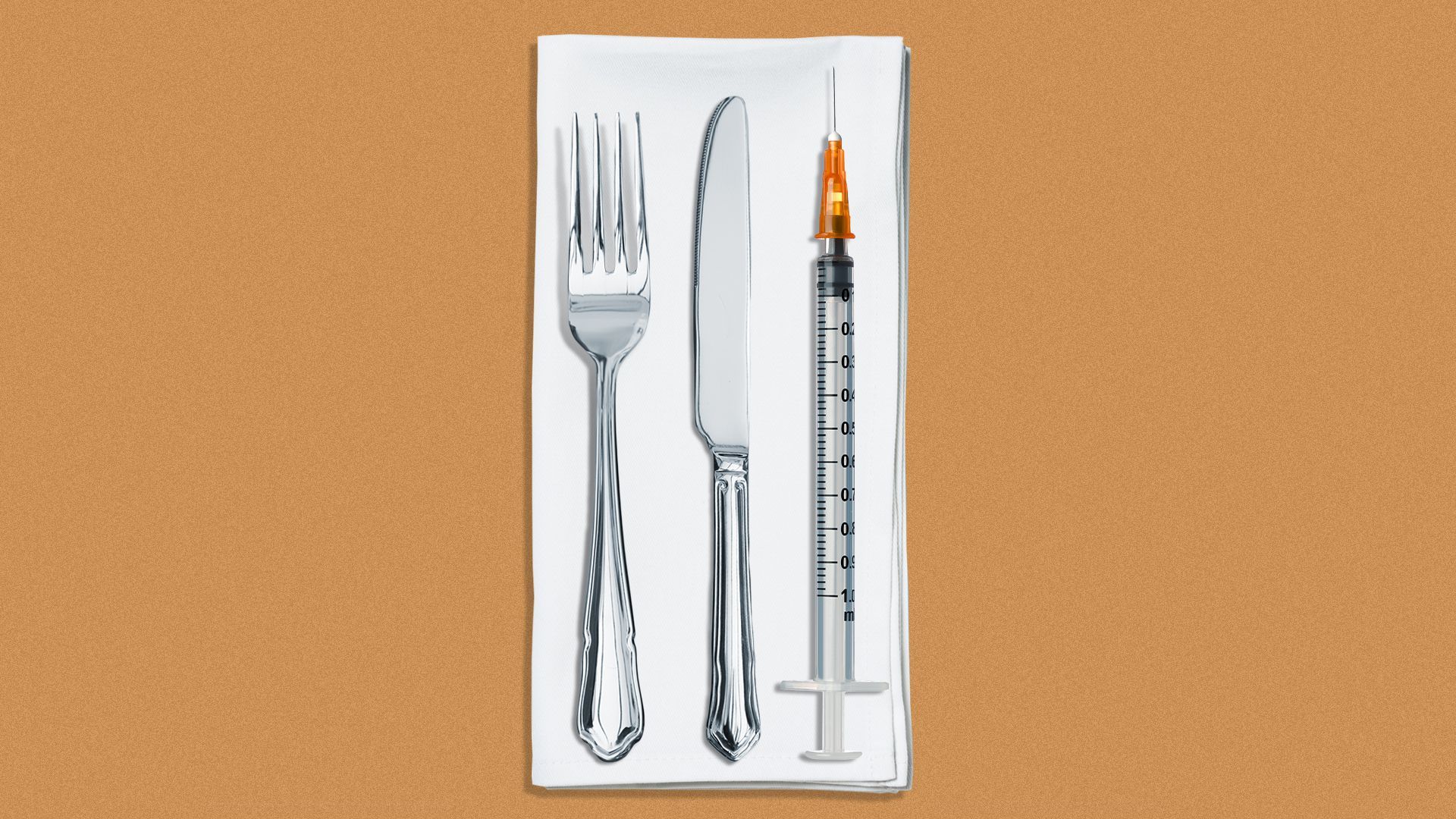Minneapolis and St. Paul to require vaccine or test for indoor dining
Add Axios as your preferred source to
see more of our stories on Google.

Illustration: Shoshana Gordon/Axios
New vaccine-or-test requirements for indoor dining and drinking in Minneapolis and St. Paul take effect Wednesday.
The big picture: A growing number of major cities, including Boston, Chicago and New York, have instituted similar requirements in an effort to protect public health.
Yes, but: Questions about enforcement, logistics and effectiveness of the temporary measures here remain.
What to know: Patrons at most indoor venues that serve food or drink — think bars, restaurants and even arenas, bowling alleys or events — must show proof of vaccination or a negative test result taken within 72 hours.
- St. Paul's measure applies only to businesses licensed by the city. That means restaurants that don't serve alcohol, such as coffee shops and fast food chains, are exempt.
- Ticketed events have until Jan. 26 to enforce the requirement.
The catch: At-home rapid tests will not be accepted, so if you're unvaccinated, you'll have to get an appointment — and results — for an antigen or PCR sample from a medical professional in time for your plans.
- On Friday, Minneapolis issued a new order that does removes earlier language requiring a test for children between ages 2 and 5. They were already exempt in St. Paul.
What they're saying: Both mayors said the move is meant to curb the spread of COVID and help businesses weather the Omicron wave.
- "This is a critical next step to avoid closures," Frey said at a Wednesday news conference. "We want to stay open, and we need to stay safer."
The other side: Minnesota Licensed Beverage Association executive director Tony Chesak criticized the mandates as "unjustified and unscientific."
- "It targets just one specific industry after zero science or data driving the decision, and zero caring about our dedicated frontline workers who will now add 'enforcement agent' to their plates," he said.
Between the lines: Given the prevalence of breakthrough cases and the reality that exposures could still occur within the testing window, some diners who meet the criteria could still be infectious.
- Plus: It's unclear how strictly the measures will be enforced, given the track record in other places. City leaders said while businesses could face fines for not checking, they saw high compliance rates for past COVID restrictions.
When asked about effectiveness in slowing spread, local public health officials emphasized the importance of vaccines for preventing serious cases from further stressing health systems.
Read the full policies for Minneapolis and St. Paul.
Editor's note: This story has been updated with additional details about the orders.

